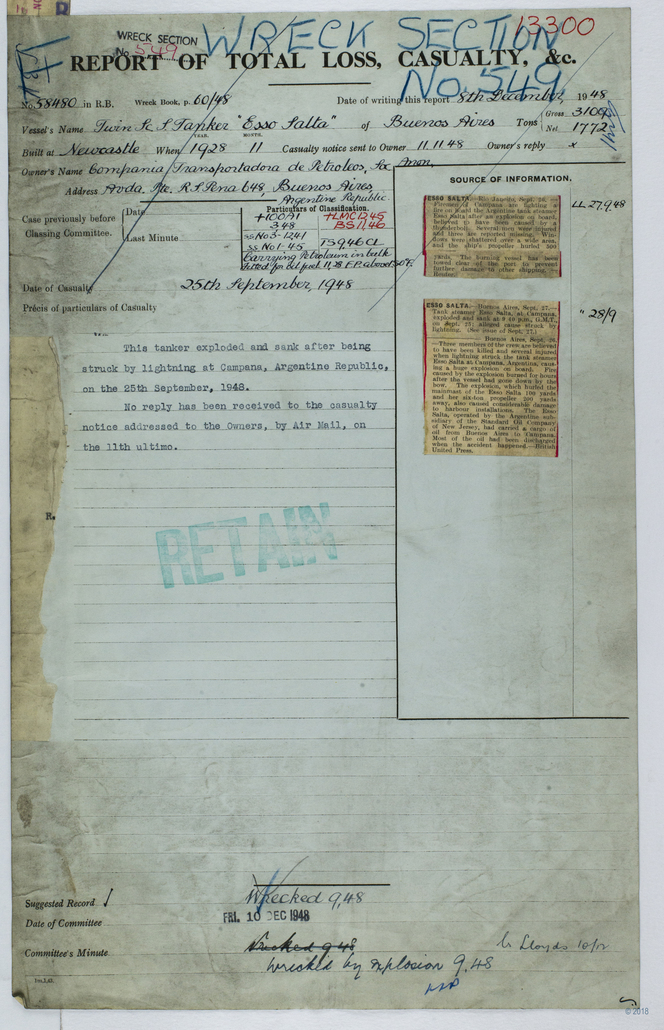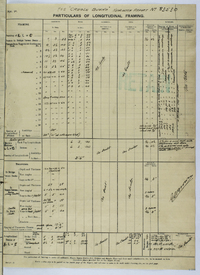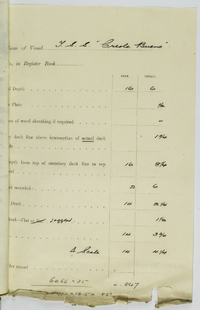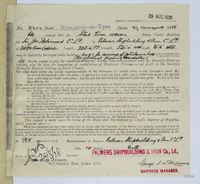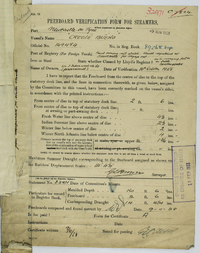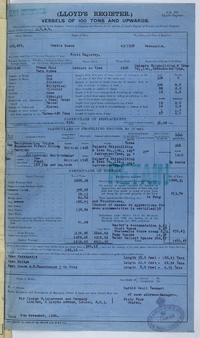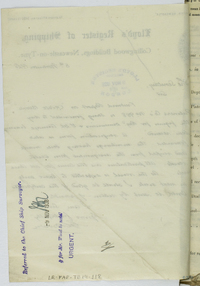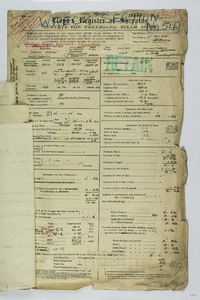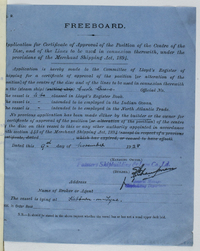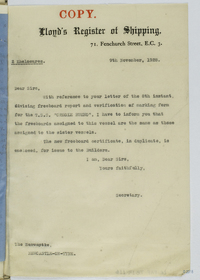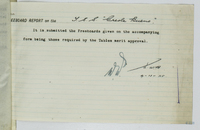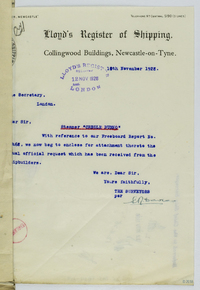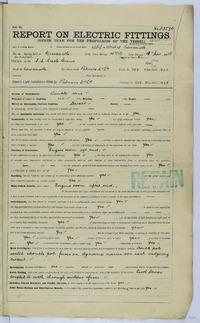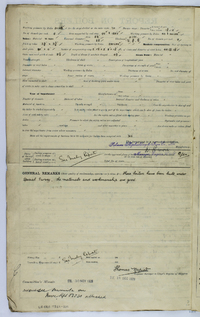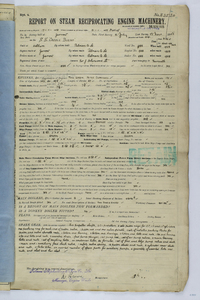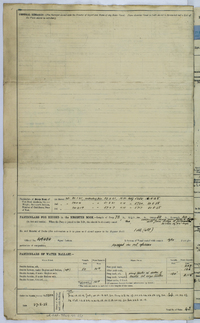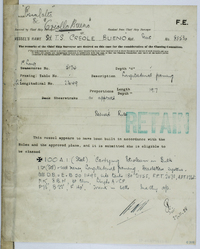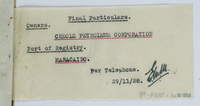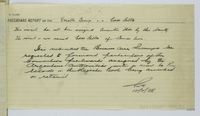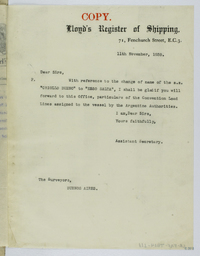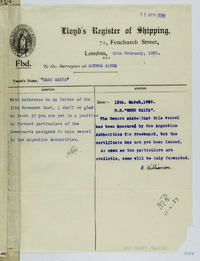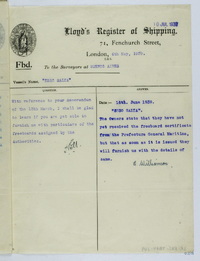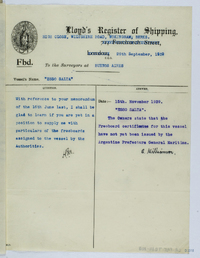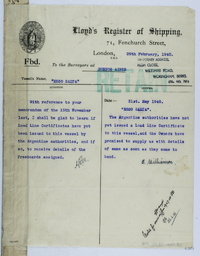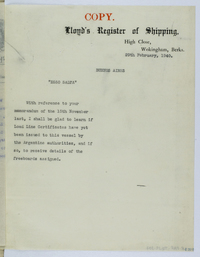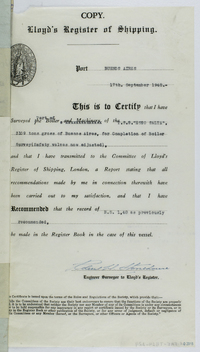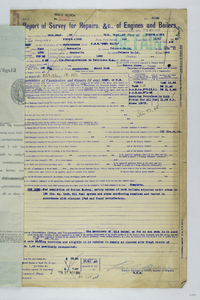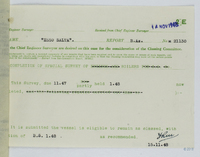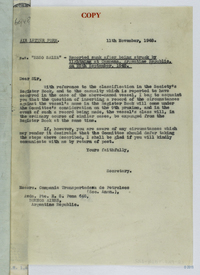- Related documents Related
- Full details Details
- Report document? Report?
Use the data export button to extract customised data sets from the Ship Plan and Survey Report Collection. Available in TSV and CSV formats.
Date recorded as the time of writing.
08/12/1948
The year in which a vessel’s construction is completed.
1928
Unique identifier for a given ship, it is assigned by a builder.
988
The country in which the vessel’s construction took place, at the time of writing.
United Kingdom
Official administrative title (often printed) of a record used by Lloyd’s Register or external organisations.
Report of Total Loss, Casualty, &c./ Wreck reports
The individual and/or organisation listed
Compania Transportadora de Petroleos Soc Anon
A vessel’s means of propulsion.
Steam
Predominant material(s) utilised in a vessel’s construction.
Steel
A ship’s total internal volume in ‘register tons’ (replaced by gross tonnage post 1982).
3109
Location of construction for a vessel’s engines.
Newcastle
Date in which construction of a vessel’s engines were completed.
1928
Confirmation as to whether the vessel was equipped with refrigeration machinery to aid in the transport of frozen or chilled cargo/goods.
No
Does the vessel possess an auxiliary power source?
No
Is electric lighting fitted to the vessel?
No
Used to indicate the capability of early reciprocating steam engines, based on dimensions rather than performance. It is not a true indication of actual engine power.
288
Contextual information related to the reasons of the vessel’s loss or disposal.
She exploded and sank after being struck by lightning.
Vessel’s place of loss or disposal/last known recorded location.
Campana
Recorded date for the vessel’s loss or disposal.
09/01/1950
Physical extent of a record.
1
Name of ship as recorded on the record
Esso Salta - 1938
The process of transferring a vessel to water, but not necessarily her completion.
10/06/1930
The port or place in which the vessel’s construction took place, at the time of writing.
Hebburn-on-Tyne
Unique internal numbers used for identifying, referring and retrieving a specific survey report.
13300
Records that constitute Lloyd’s Register’s first official encounters with a specific vessel, e.g. a survey report.
N
Broad categories and subdivisions of vessels related to their purpose or function.
Tanker
Type of fuel used onboard a vessel.
Steam - Oil
Is the steamer assisted by sail?
No
Tonnage derived by deducting from the gross register tonnage the capacity that in unavailable for cargo, e.g. machinery space, fuel, crew accommodation etc.
1772
The country, at the time of writing, where a vessel’s engines were constructed.
United Kingdom
Palmer's Shipbuilding & Iron Co Ltd
Is machinery fitted at the aft of the vessel?
No
Generally a smaller additional auxiliary boiler (often used while the vessel is at port).
No
Name of the Proving House responsible for the public testing and certification of a vessel’s anchors and/or chain cables.
No
The official record pronounced by the Committee
Wrecked
3
The country or national waters where a vessel is lost/disposed of, or last recorded.
Argentina
Recorded information relating the specific cargo being conveyed.
petroleum
Pertinent, useful or interesting recorded content.
Wreck report. She exploded and sank after being struck by lightning at Campana, Argentine, on the 25th September 1948. There are 2 newspaper cuttings reporting the incident. It is reported that windows were shattered over a wide area and the ship's propeller hurled 500 yards.
Report an issue with this document
Have you noticed missing or incorrect data or images for this document?
Please let us know and we will rectify the issue as soon as possible.

